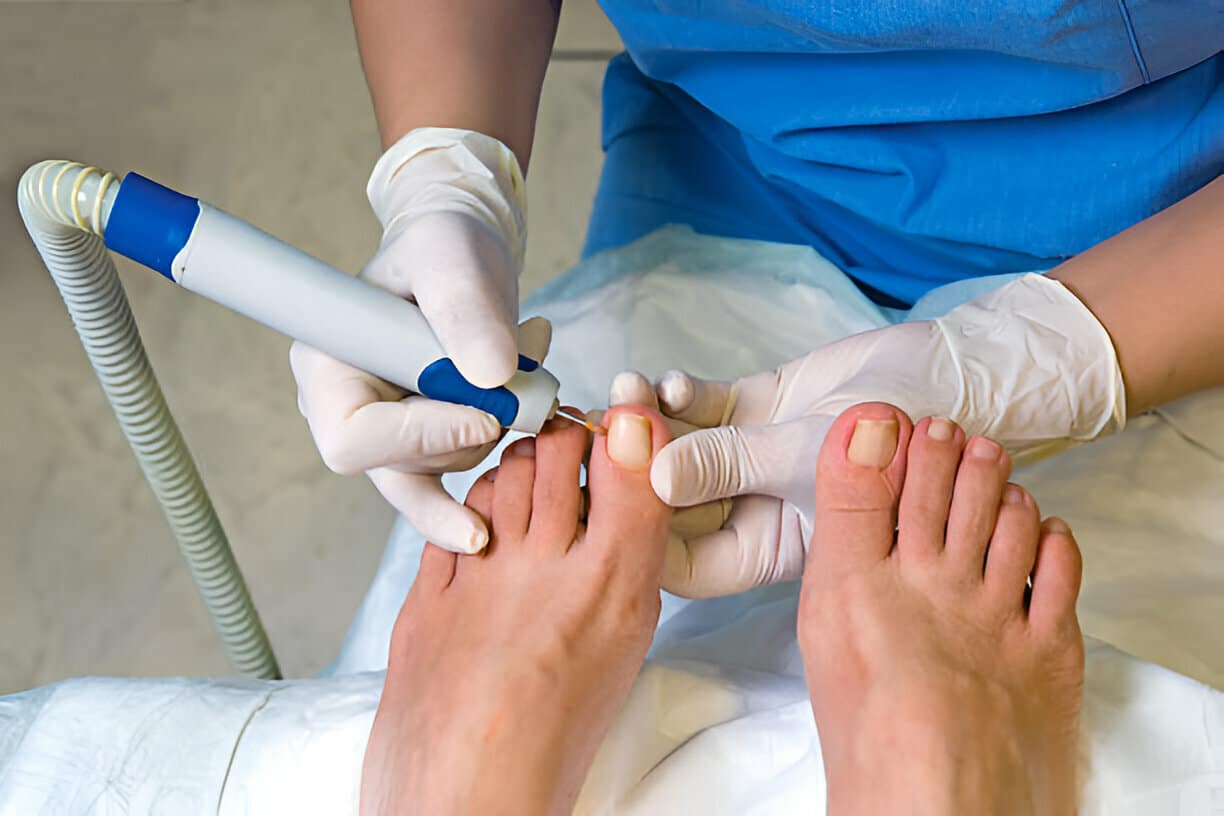Ingrown toenails are a common foot condition in which the edge of the toenail grows into the flesh of the toe. This can cause pain, swelling, redness, and infection. Ingrown toenails can affect anyone, but they are more common in people with certain risk factors, such as those who have diabetes or poor circulation.
How do I know if I have an ingrown toenail?
Symptoms of an ingrown toenail include pain, redness, and swelling around the affected toe. There may also be drainage or pus coming from the area. The pain may be worse when wearing shoes or when putting pressure on the toe. In some cases, the affected toe may become infected, which can lead to fever, increased pain, and a foul-smelling discharge.
Ingrown toenails are often caused by improper nail care Including:
- trimming nails too short
- rounding the corners of the nails when cutting your nails, which can lead to the nail growing into the flesh
- wearing tight or ill-fitting shoes due to added pressure on the toes.
People who have naturally curved nails are also at higher risk of developing ingrown toenails.
Other factors that can contribute to ingrown toenails include foot injuries, fungal infections, and certain medical conditions such as diabetes or poor circulation.
What do I do if I have an ingrown toenail?
If you suspect you have an ingrown toenail, it’s important to see a podiatrist for diagnosis and treatment. In mild cases, the treatment may involve soaking the affected foot in warm water and avoiding tight shoes. Your podiatrist may also recommend over-the-counter pain relievers or topical antibiotics to reduce pain and prevent infection.
In more severe cases, your podiatrist may need to remove part of the affected nail to relieve pressure and prevent the nail from growing into the flesh. This procedure is typically done in the clinic and may require a local anaesthetic.
Prevention is key when it comes to ingrown toenails. To prevent ingrown toenails, it’s important to:
- keep your toenails trimmed straight across
- avoid rounding the corners or cutting them too short
- wear shoes that fit well and don’t put pressure on your toes
Additionally, if you have diabetes or poor circulation, it’s important to take extra care when caring for your feet and to see a podiatrist regularly to check for any signs of ingrown toenails. Taking these preventative measures can help you avoid the pain and discomfort associated with ingrown toenails and keep your feet healthy.

